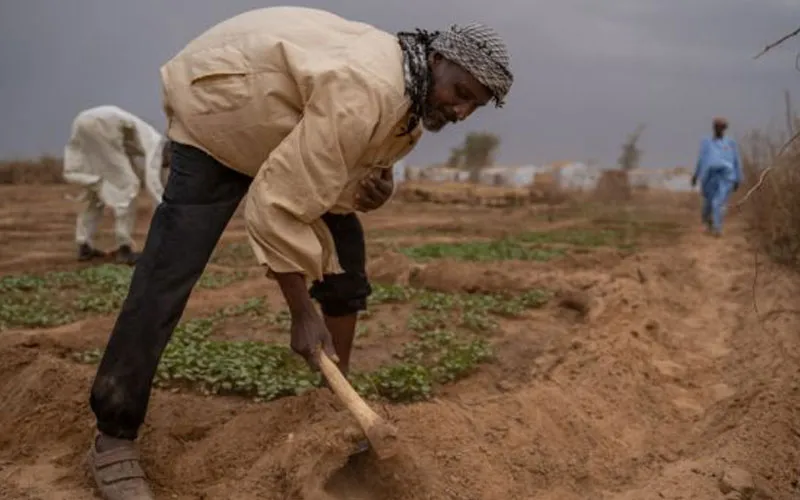Garoua, 19 July, 2022 / 3:18 pm (ACI Africa).
A section of Internally Displaced Persons (IDPs) at Ardjaniré camp in Cameroon are benefiting “a communal garden”, an initiative that the entity of the Society of Jesus (Jesuits), the Jesuits Refugee Service (JRS), has spearheaded.
In a Monday, July 18 report, JRS leadership says that the project that aims at planting some 1,800 trees and having a vegetable garden seeks to improve the livelihoods of refugees and IDPs in the Cameroonian camp.
“To support internally displaced people in Ardjaniré, the Jesuit Refugee Service (JRS) opened a communal garden in partnership with UNHCR Cameroon,” JRS officials say in the July 18 report.
The officials of the Jesuit entity add, “The project aims to enhance the food and livelihoods resilience of IDPs by planting 1,800 trees and opening a vegetable garden.”
The JRS officials regret the fact that “expanding the project will not be easy”, and explain, “As of now, the Ardjaniré camp does not have enough wells to provide water for more gardening and other basic needs.”








